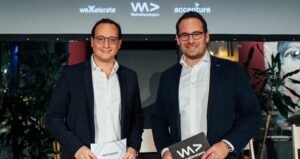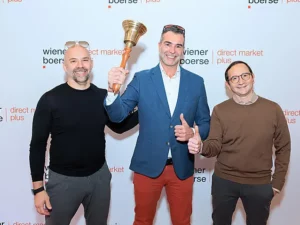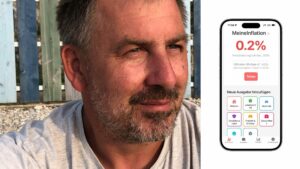Daniel Tomov: We Have Invested In 115 Companies In Three Years. I’m Not Sure I Would Do It Again.
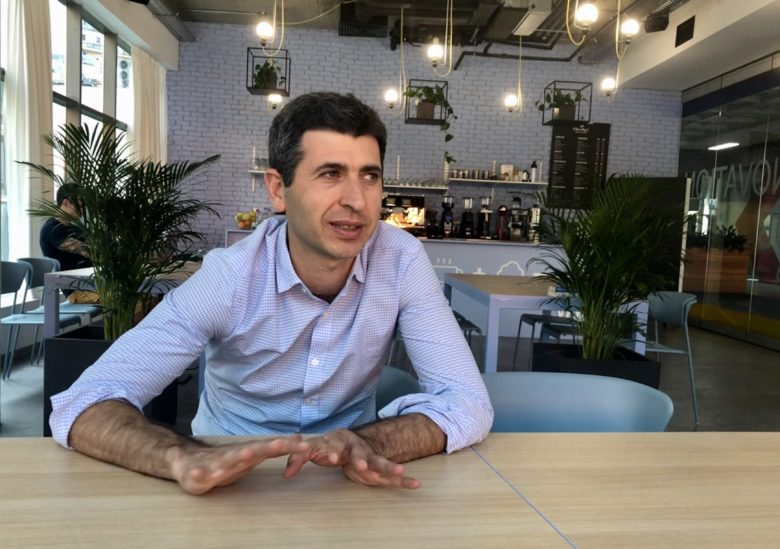
Trending Topics has started a series of interviews with venture capital, private equity, and angel investors from Bulgaria and Eastern Europe, to better understand their mindset, strategies, and put together a well-rounded picture of the industry as it is today. What should the region invest in, what have the EU funds for venture funds accomplished, are there any gaps, and what could be done better. In the next few months, we’ll interview one investor a week to collect as many perspectives as possible.
Daniel Tomov is among the pioneers of the venture capital industry in Bulgaria. Three years after he graduated from the American Unversity in Bulgaria, and spent some time in the corporate world, in 2000 Tomov cofounded the seed investment fund Bulventures – a kind of startup itself, and the first seed fund in Bulgaria. One of their early investments was Melon Technologies, an IT service company that is still on the market today. After the fund was invested, he spent three years as an investment manager at Global Finance, a €20M growth fund with a focus on SMEs.
In the next years, his focus shifted towards renewable energy. Bulventures raised another fund, this time with a focus on renewable energy projects, mainly in the solar and wind domain. He also cofounded Quantum Solar, a project development company, that developed 10 MWp photovoltaic plant in Bulgaria. The local ecosystem associated Tomov mostly with the accelerator Eleven and private investment fund Eleven Ventures.
In 2012 he cofounded Eleven, a venture capital firm based in Sofia. Back then, Eleven got the mandate to deploy €12M (70% financed by the European Investment Fund) to companies in the acceleration phase. The truth is, a lot of the close to 120 projects their first fund backed weren’t capable of surviving. At that point, the ecosystem was not wholly aware of how VC market functions. It was a beginning. Two years ago, Tomov alongside with his partners from Eleven, and Telerik co-founder Vasil Terziev raised a completely private fund, with an entirely different strategy.
Often enough, talking to people in and outside the startup ecosystem we are confronted with questions like “So what happened with all those companies Eleven invested in?”, “Where are the exits?”. Daniel Tomov is probably the best person to ask such questions.
Tomov tends to be very balanced and careful in the way he expresses himself and comments situations. In this interview, he speaks very honestly about the lessons he learned from being a seed investor, having to back 120 companies in three years, and his overall observation of the local ecosystem and VC industry.
Trending Topics: What’s the current status of Eleven’s portfolio? How are companies performing?
Daniel Tomov: With our first fund, we have 115 investments in total. At the moment, 50 are still active, and we are focused on 20 of them, which demonstrate healthy growth, and we believe that these would produce the fund returns. We have to take into account the fact that this first fund was not a real VC fund but an accelerator fund. Initially, we were backing very early stage companies (idea/ prototypes) while towards the end of the investment period, we started to invest in companies with an existing product. We expect to see our first more significant exits in the next one to two years. In the portfolio of the second fund, we now have 11 companies – most of them pretty early stage with few of them demonstrating pretty solid growth, e.g. GTMhub and SMSBump.
The accelerator Eleven evolved into Eleven Ventures, which among other runs corporate acceleration programs. How are these two funds different in terms of philosophy and strategy?
The first fund was organized entirely as an accelerator program. We invested at a very early stage – in most of the cases, there was no product, but only a prototype. The purpose of the accelerator was to establish the foundations of the startups and to create opportunities. We have learned a lot throughout the years, so we have structured the current fund a little bit differently. We are still in the early-stage and pre-seed segment, but now we have significantly larger tickets of €200K-300K that could provide 12-18 month runway. When the investment is broken in small tickets, the team usually is in never-ending fundraising instead of focusing on their business. We have witnessed many situations in which the company suffered because of this constant fundraising. The local (and regional) startups are chronically underfunded compared with their Western peers, or Asian ones.
The second difference is that now we are investing in more mature companies – ones that have already invested a significant amount of time and money. There were a lot of cases in the first fund where the projects would not have happened at all if we had not invested. An old VC is saying that the best investment targets are these companies that could do without a VC investment and the paradox is that these companies benefit most from VC money. And we try to stick to this rule.

Coming back to the tickets and the fact that companies are underfunded, are you saying that there’s not enough capital in Bulgaria? It seems just the opposite with all the new funds…
The question is whether the companies are sufficiently funded. There are now a lot more funds that will start investing soon, and this will help the entire ecosystem. However, not so much in the very early stage, which is essential for a healthy ecosystem. The early-stage is usually very risky, and most investors avoid it. The limited liquidity further exacerbates this in our ecosystem where sometimes no investment is better than an insufficient investment that does not meet the company needs.
Is this the reason for Eleven Ventures to start partnering with corporates?
This is part of our idea of accelerating the portfolio companies – most of their resources are spent on customer acquisition. By linking them more systematically with corporations, our investments are also more sustainable. Corporate partnerships are also part of the business model of early-stage funds. For the portfolio companies, it might mean a pilot within 2-3 months, instead of 12.
Eleven Ventures is a private fund. In a previous interview, Pavel Ezekiev commented that the European Investment Fund refused to invest public money in Eleven again. Vassil Terziev, who is now a partner at Eleven send corrections saying that you didn’t take the money. Why?
Although the EIF is a great institutional partner, with the first fund, we made an interesting discovery: in the very early stage, you need the private investors – their contacts, expertise, and know-how. When we started investing five years ago, we also saw business angels entering the ecosystem. But there was considerable fragmentation of investments and effort. It was hard to convince an angel investor to help a company in which he had no share. Then we decided that the next fund would bring these people together because then the expertise and contacts of all could be multiplied.
We also learned that we need to adjust to situations and the needs of entrepreneurs. Our model from the first fund is no longer adequate for the ecosystem. You need always to observe the situation and reinvent yourself.
What do you think about the way the Fund of Funds has structured the investment vehicles? Based on your experience, could a pre-seed and seed fund with small tickets be sustainable and efficient if it has to back 200+ ventures?
That’s too much. We have invested in 115 companies in just over three years. It was tough, and I’m not sure that I would do it again. Companies like Techstars, Startup Bootcamp, and YCombinator, do this, but with much much more extensive infrastructure. To be able to work with so many companies, you need a very structured accelerator approach and to change teams and program managers often as they get exhausted. I’ve done it ten times, and it’s very exhausting.
Accelerators are an exceptional case. Usually, there are the same expectations as from VCs, but they are not VC funds. After an acceleration program is over, the managers typically are not that active part of the development of the company. They have a few touchpoints in the form of office hours. In our context, you have to remain an active investor after that because the ecosystem still cannot provide this level of ongoing intensive support. It was a big surprise for us. We were fortunate to have a network of mentors, investors, and many friends. But as a small team, you can’t be an active investor in all your portfolio companies while running the next acceleration program. You have to prioritize.

Do you think there are enough companies in Bulgaria?
We have a strong pipeline, and we see enough good companies. To have enough, there must be a lot of early-stage experiments though, this is not the case, as the segment is very risky and not many managers want to play that game. Right now, there aren’t enough early-stage companies. With the first fund, we closed 30-40 investments a year. I don’t think there are as many companies at the moment. However, the number may not be the best indicator. Quality can compensate.
So do you also look for deals outside Bulgaria?
Currently, we don’t have investments in companies outside Bulgaria. In this phase, where we are, being close to the entrepreneurs is very important. With the first fund, we had investments in companies in the region, but we observed that it’s crucial that after the accelerator ends, the founders can integrate into an intensive environment that becomes their safety net. For many teams that failed, part of the problem was that they returned to their respective home markets where the ecosystems were not as developed.
On the other hand, as we start to explore specific verticals – fintech or healthtech, we’ll also start looking more actively for companies in the CEE region as well.
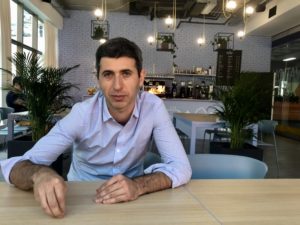
What does the local VC industry need to work on?
We have to keep working. Many things have changed in the last six years, and we are already building on the lessons we have learned. It is essential for us to work with each other – to have more co-investments and cross-investments. Although the comradeship in the VC industry is actively growing, you could still see situations where investors are fighting for a deal rather than sharing. And this is important since sharing brings more weaponry at the disposal of founders and increases their fighting chances.
Another significant milestone for the development of the local ecosystem are the exits. This will take time, and probably the first exits will not be as impressive as the ones we read about in TechCrunch. However, statistics show that 97% of global exits are in the €10-40M range. The question here is whether we are looking for phenomenal exit such as Telerik’s, or whether we want smaller but systemic exits. In my opinion, the second scenario is the better one. Venture capital will become a real industry in Bulgaria in a moment when we start seeing exits more frequently.
Read also:












